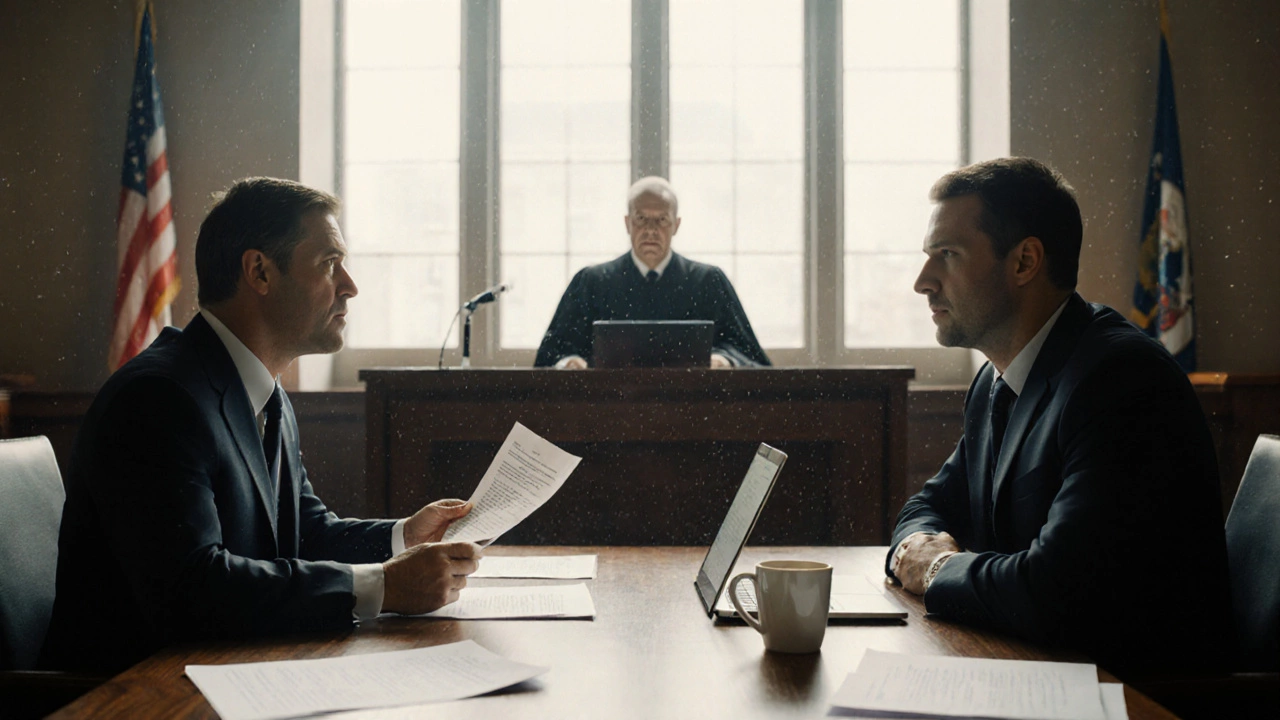Civil Court Guide: How to Prove Your Case and Win
If you’re standing in a civil court, the biggest question on your mind is probably: how do I prove my side? Unlike criminal trials, civil cases focus on who is right about a dispute over money, property, or a contract. The good news is that the rules are simpler and the stakes, while still important, are not life‑or‑death. Below you’ll find the must‑know steps to gather evidence, present it, and persuade the judge.
Know the Burden of Proof
In a civil case, the plaintiff (the person who files the suit) carries the burden of proof. That means you have to show that it’s more likely than not that your claim is true. The standard is called "pre‑ponderance of evidence" – think of it as tipping the scales just a little over the halfway line. If you’re the defendant, you don’t have to prove your innocence; you only need to show that the plaintiff’s evidence isn’t strong enough.
Collect the Right Evidence
Evidence is the backbone of any civil case. Here’s what usually works:
- Documents: contracts, invoices, emails, or letters that prove the agreement and any breach.
- Receipts and Bank Statements: show what was paid, what was owed, and any missing amounts.
- Photographs or Video: useful for property damage, landlord‑tenant disputes, or personal injury.
- Witness Statements: anyone who saw what happened can give a written or oral account.
- Expert Reports: in complex cases, a professional opinion (like a surveyor for property or a doctor for injury) carries weight.
Make sure every piece is authentic and dated. Fake or tampered documents can backfire and damage your credibility.
Once you have your evidence, organize it chronologically. A neat timeline helps the judge follow the story without getting lost in paperwork.
File the Right Documents on Time
Indian civil procedure has strict filing deadlines. Missing a deadline can mean your case gets dismissed, even if you have solid evidence. Check the court’s schedule, file your plaint (the initial complaint) correctly, and serve the opposite party within the stipulated period. When you submit evidence, use the proper forms and label each item clearly – for example, "Exhibit A: Signed lease agreement dated 12 Jan 2023."
If you’re unsure about any form, most district courts have help desks, or you can ask a local lawyer for a quick review.
Present Your Case Effectively
During the hearing, the judge will ask you to explain your side. Keep these tips in mind:
- Start with a brief summary of what you want – for example, "I seek Rs. 2 lakh as compensation for unpaid rent."
- Refer to each piece of evidence in the order you presented it. Say, "As you can see in Exhibit B, the payment was never made."
- Answer questions directly. If you don’t know an answer, say so rather than guessing.
- Stay calm. A steady tone shows confidence and helps the judge focus on facts, not emotions.
Remember, the judge is not there to take sides; they just want the truth. Your job is to make that truth clear and easy to see.
After the Judgment
If the judge rules in your favor, you’ll get a decree specifying what the other party must do – pay money, hand over property, etc. If they don’t comply, you can file a execution petition to enforce the decree. If the judgment isn’t what you hoped for, you have a limited window (usually 30 days) to appeal to a higher court.
Handling a civil case doesn’t have to be a mystery. By knowing the burden of proof, gathering solid evidence, meeting deadlines, and presenting your story clearly, you give yourself the best shot at winning. Good luck, and keep your paperwork tidy!

What Is a Civil Case? Simple Examples and How They Work
A civil case is a legal dispute between private parties over money, property, or rights. Learn what civil cases are, common examples like contract breaches and personal injury claims, and how they differ from criminal cases.

How Do You Know If You Have a Federal Case?
Learn how to tell if your civil case belongs in federal court. Understand federal jurisdiction rules, common cases, and what to do if you're unsure where to file.

Can You Date While Separated in VA? Here’s What Civil Court Really Thinks
Thinking about dating while separated in Virginia? This article breaks down what the law actually says and how courts see new relationships before your divorce is final. Find out why timing and evidence matter more than you might expect. Get tips to protect yourself from legal drama or surprises in court. Whether you’re ready to move on or just testing the waters, know the risks before you swipe right.

Will I Need to Pay My Husband's Debt If He Passes Away in Virginia?
Worried about your husband's debts in Virginia if the worst happens? This article lays out exactly how debt is handled after a spouse dies, who might be on the hook for payments, and what the law really says. You'll learn the difference between personal and joint debts, how the probate process works, and common missteps spouses make. Useful tips and real-life examples keep things clear and practical for anyone facing this stressful situation.

Can I Sue a Judge for Bias? Your Real Options in Civil Court
Ever left court feeling the judge had it in for you? This article explains if you can actually sue a judge for bias and what steps people really take if they think a judge didn't play fair. You'll learn what counts as judicial bias, why judges are so hard to sue, and smarter moves if you think you've been treated unfairly. By the end, you'll know the real-life options for dealing with a biased judge in civil court. Everything here is explained without legal jargon or fluff.

Winning Preponderance of Evidence in Civil Court Cases
In civil court cases, winning often depends on convincing the judge or jury through preponderance of evidence. This article provides a practical guide to understanding and leveraging this legal standard effectively. Learn how to collect and organize evidence, present it persuasively, and improve your chances of success. With strong preparation and strategic insight, you can tip the scales in your favor.

Handling Unfair Judges in Civil Court
Dealing with an unfair judge in a civil court can be a daunting experience. This article explores the potential signs of judicial bias and provides practical steps to address the issue, from documenting incidents to seeking legal assistance. Understanding your rights and knowing how to react appropriately can make a significant difference in the outcome of your case. Learn how to advocate for fair treatment in the courtroom effectively.

Types of Civil Court Cases the Federal Government Handles
Federal courts handle cases that involve national laws, disputes between states, and certain areas like bankruptcy or patent laws. They ensure that the United States Constitution and federal statutes are upheld through impartial judgments. Among their roles, federal courts take on complex cases related to civil rights and environmental regulations. Discover how federal jurisdiction is determined and the types of civil cases that find their way to federal courts.

Understanding 'Disposed' in Civil Court Cases: A Comprehensive Guide
The term 'disposed' in the context of civil court cases is frequently encountered but often misunderstood. It signifies the conclusion of a case's processing, whether through a trial, settlement, or dismissal. Understanding what 'disposed' means can empower individuals involved in legal proceedings. This article elucidates the nuances of this term and shares helpful tips for navigating the intricacies of civil court procedures efficiently.